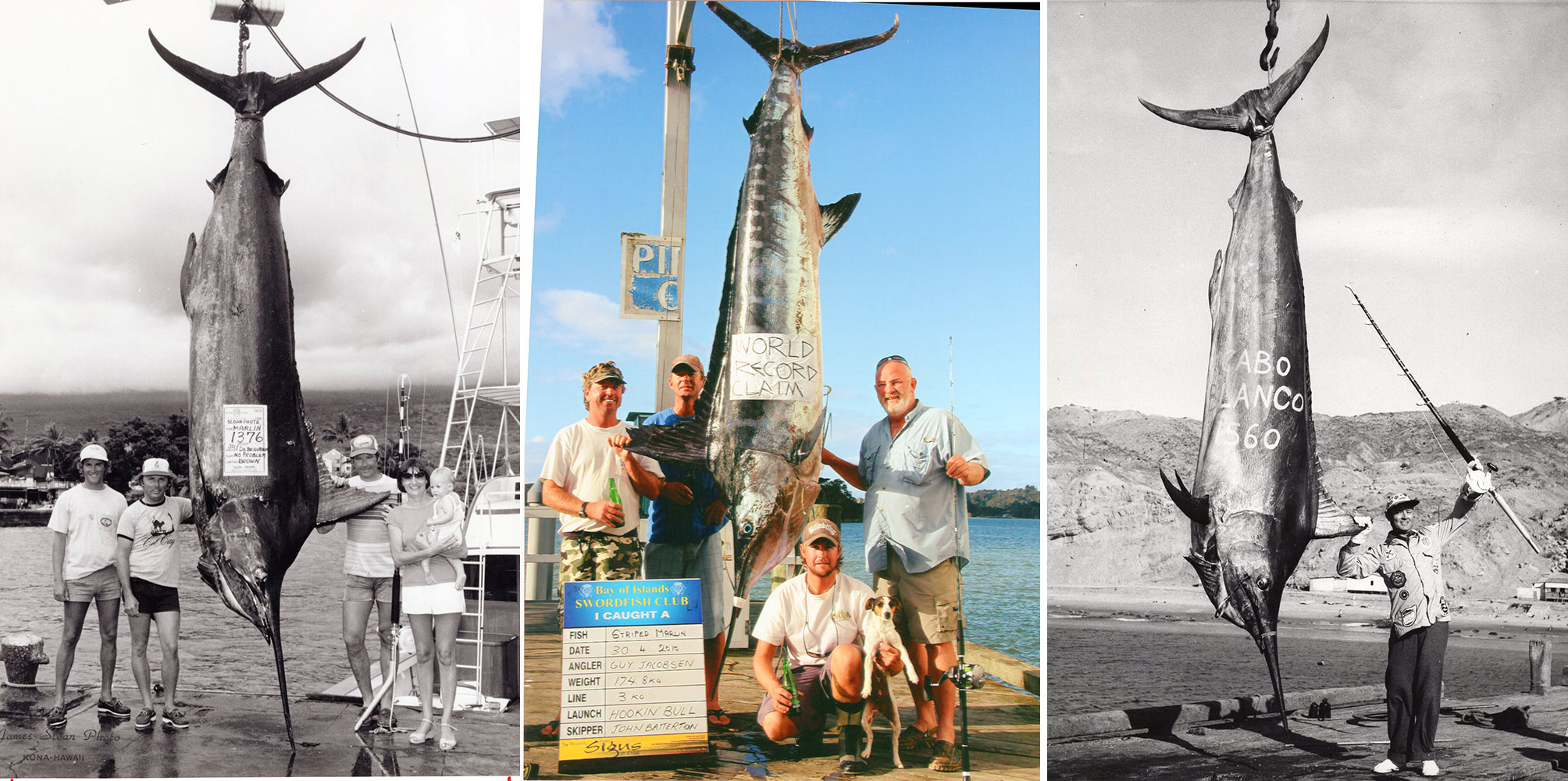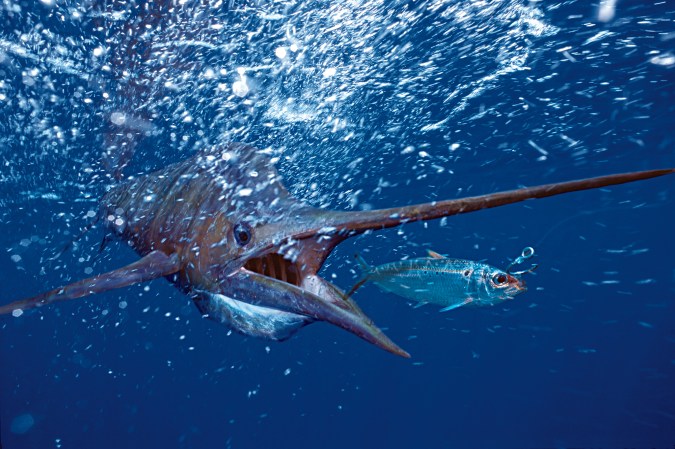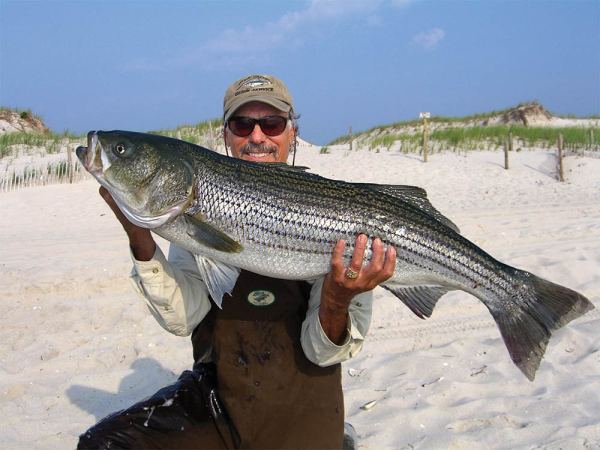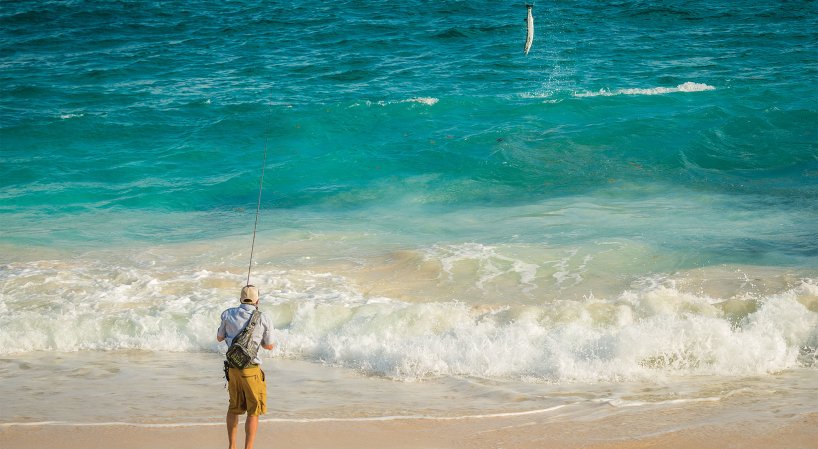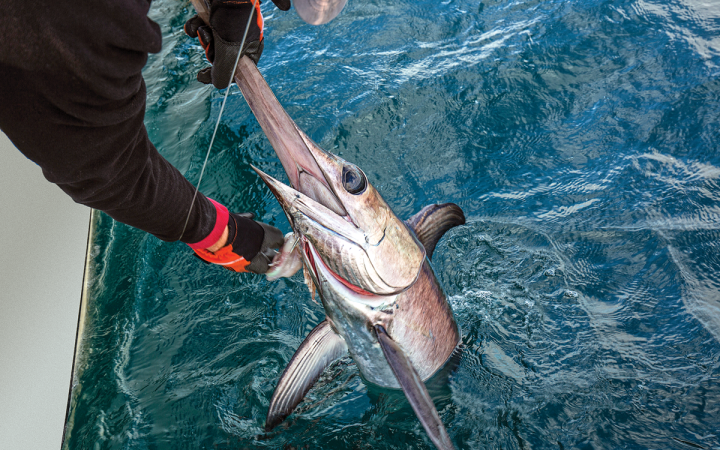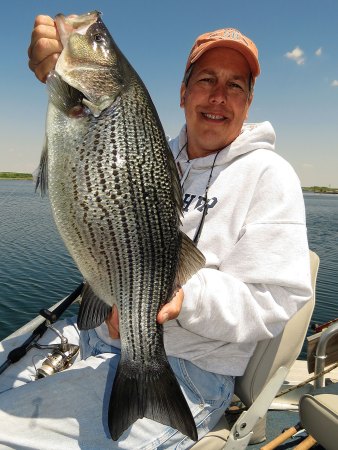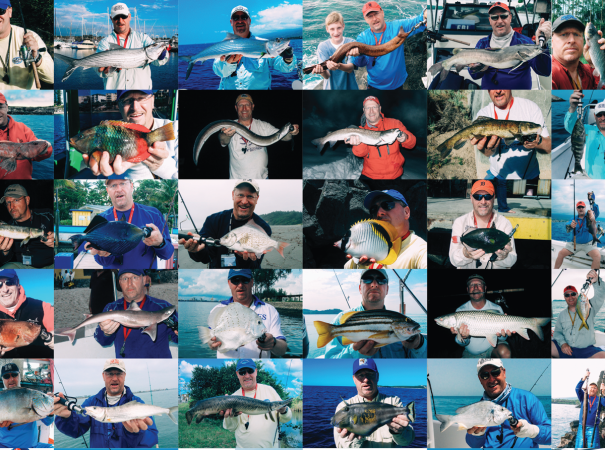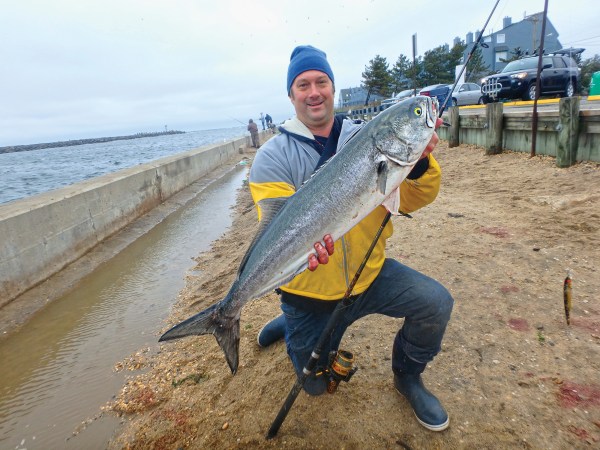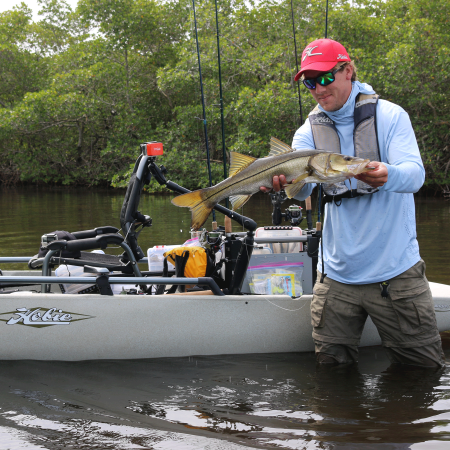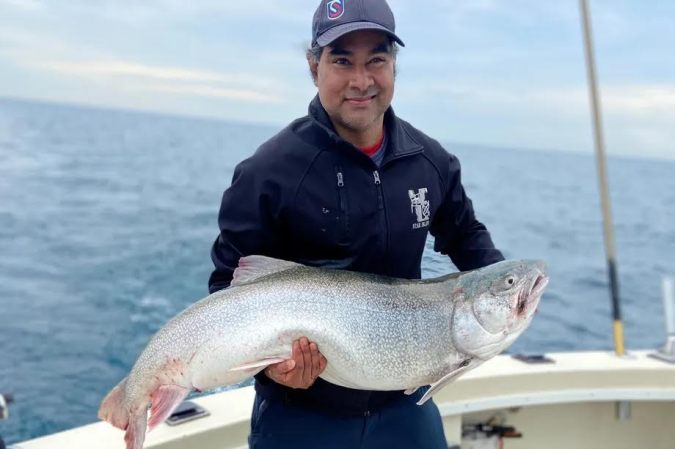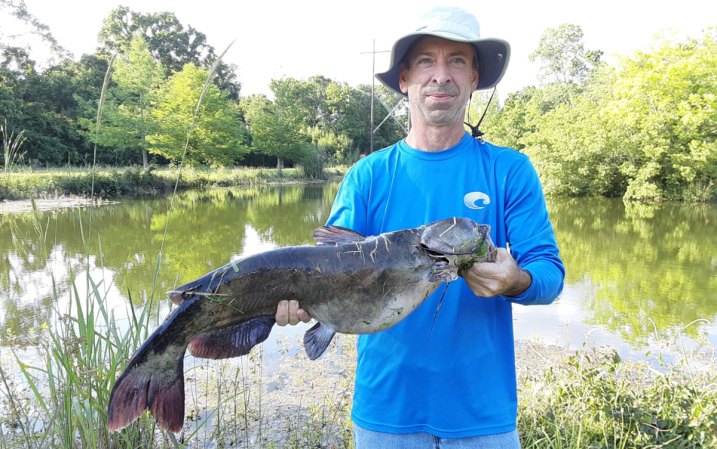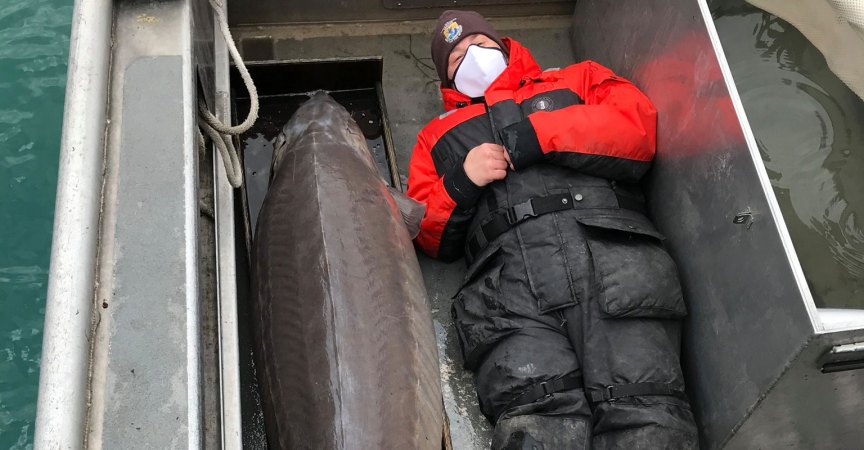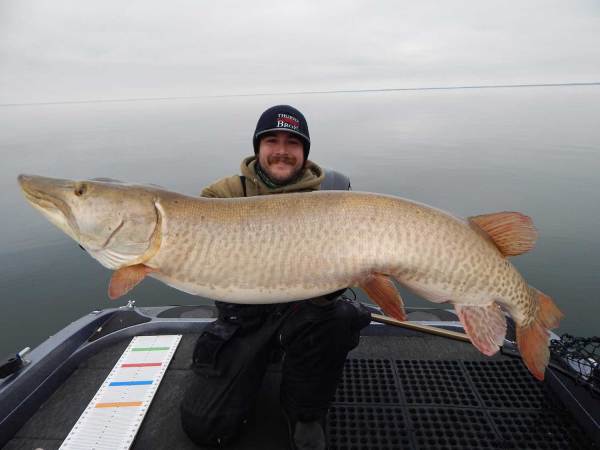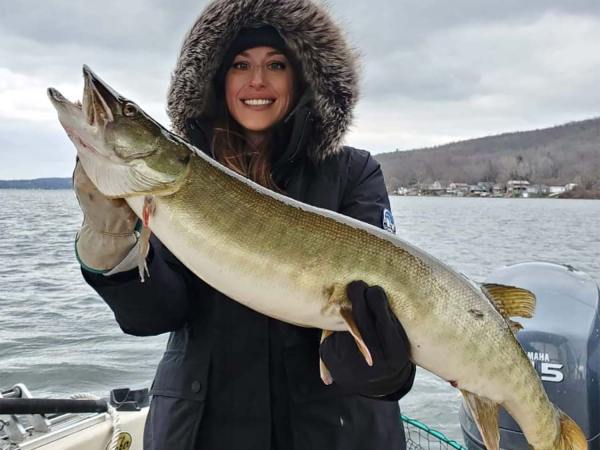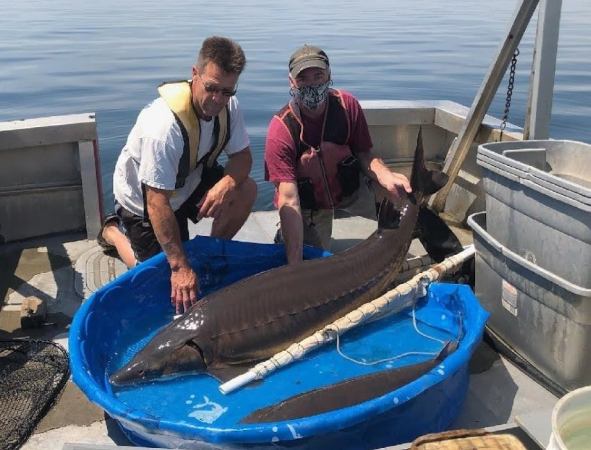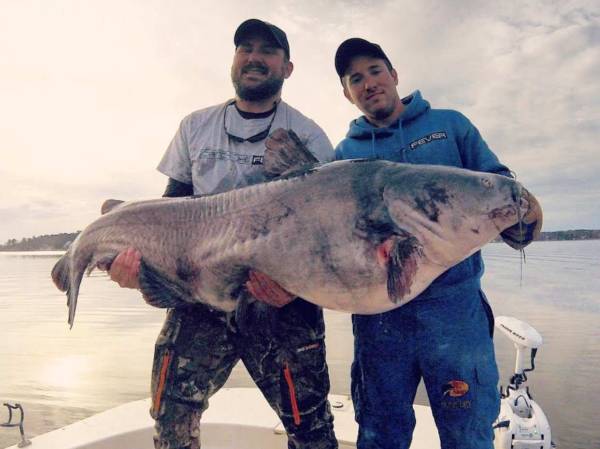Few fish inspire anglers more than the powerful, beautiful billfish patrolling the blue waters of the world’s oceans. This is partly because marlin themselves are such majestic fish. But it’s also because iconic authors like Zane Grey and Ernest Hemingway wrote famous stories that motivated generations of anglers to dream of fighting the mighty marlin.
The International Gamefish Association recognizes five species of marlin in its record books. Here is a look at the current all-tackle record holders and a few angler achievements where monster fish were caught on incredibly light line.
According to IGFA, any marlin larger than 300 pounds is most likely a female. Five-hundred-pound males are rarities. A fish larger than 1,000 pounds is commonly called a “grander.” Marlin larger than those recorded in the the IGFA records have been reportedly caught during commercial fishing operations or by anglers who weren’t following IGFA rules. These are the biggest marline ever caught, according to the IGFA.
Black Marlin, 1,560 Pounds
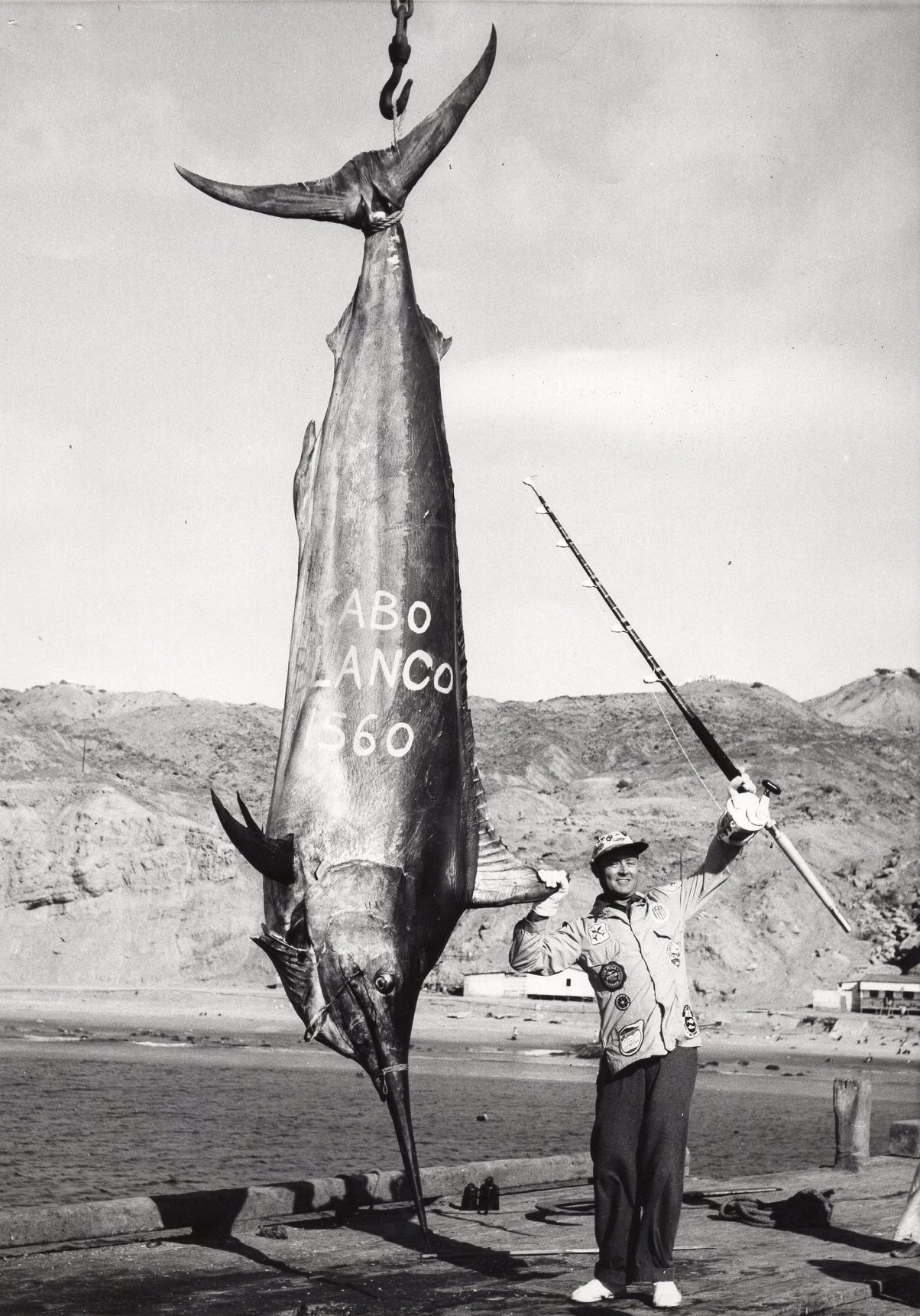
Alfred Glassell, Jr. is the all-tackle record holder with a 1,560-pound black marlin, caught Aug. 4, 1953 off Cabo Blanco, Peru. The marlin was 174 inches long with an 81-inch girth. Glassell was using a Tycoon rod and 12/0 Fin-Nor reel. He was trolling a mackerel.
Another amazing record is in the men’s 6-pound line class, which is set by Enrico Capozzi who caught a 735-pound, 3-ounce marlin. Capozzi’s marlin was 133 inches long with a 66-inch girth. He caught the marlin off Port Stephens, New South Wales, Australia, on Feb. 7, 2000. He was using a Bill Boyd custom rod equipped with a Shimano TLD20 reel. The line was 6-pound Stren Hi Impact Gold. He was also trolling a mackerel.
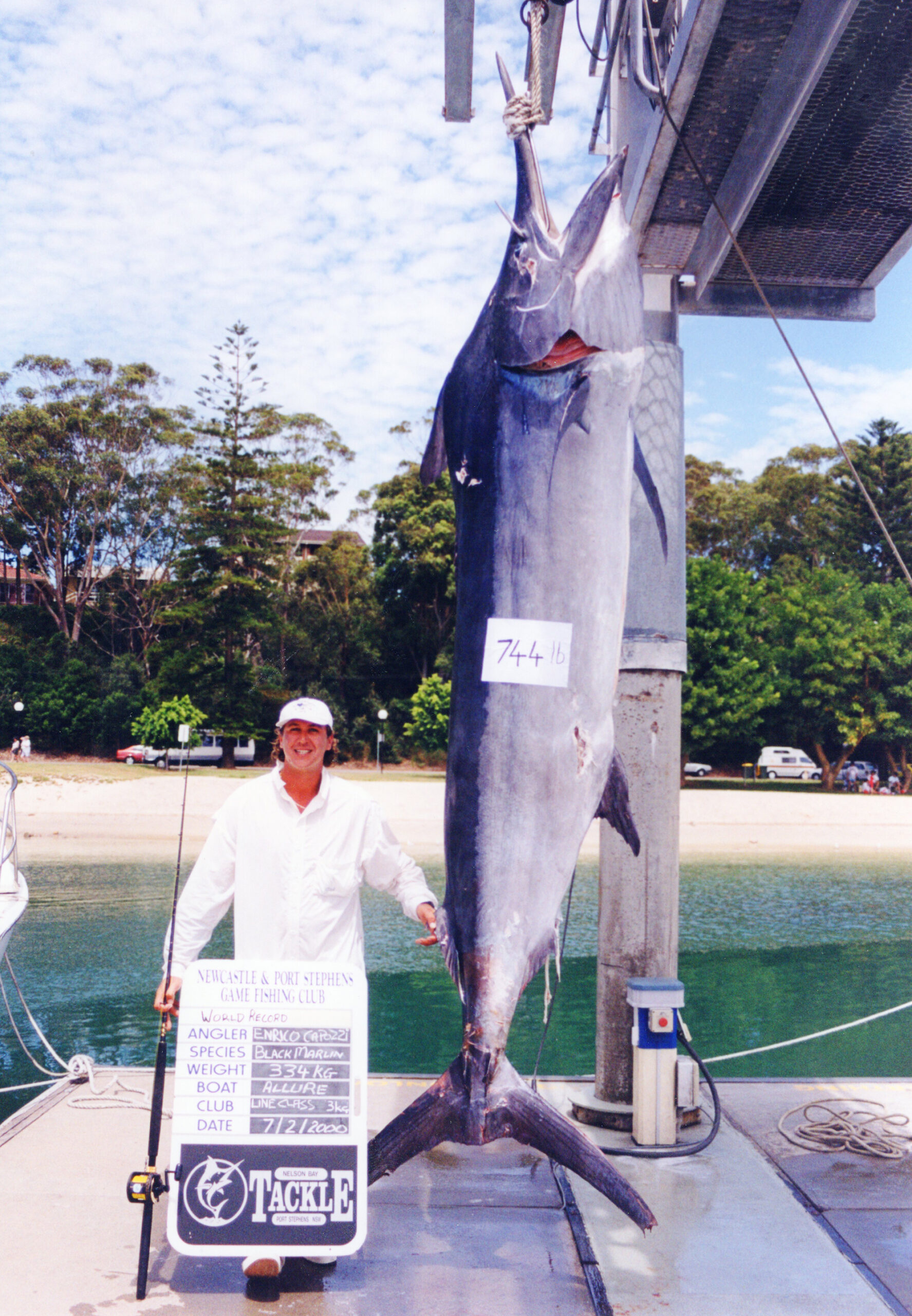
The black marlin is a popular gamefish, prized for its power and size. It likes the tropical waters of the Indian and Pacific Oceans and might be found anywhere in open waters but congregates more in coastal areas and near islands. The marlin can range great distances. According to IGFA, some black marlin swim around Africa’s Cape of Good Hope into the Atlantic. Black marlin have even crossed the Atlantic, making it as far as Rio de Janeiro, Brazil and the Atlantic coasts of the Lesser Antilles.
Black marlin are readily differentiated from other marlin species by their rigid, airfoil-shaped pectoral fins that cannot be folded flat up against the body. The ventral fins are short, rarely over a foot long. The top half of the black marlin is slate blue, changing to silvery white below the lateral line. Some black marlin can have a silvery haze, a characteristic that had Hawaiians believing it a separate species and referring to it as “silver marlin.”
Black marlin are usually caught when trolling large, whole baits such as mackerel, bonito, flying fish, squid and others. They’ll also take artificial lures and live bait.
Atlantic Blue Marlin, 1,402 Pounds
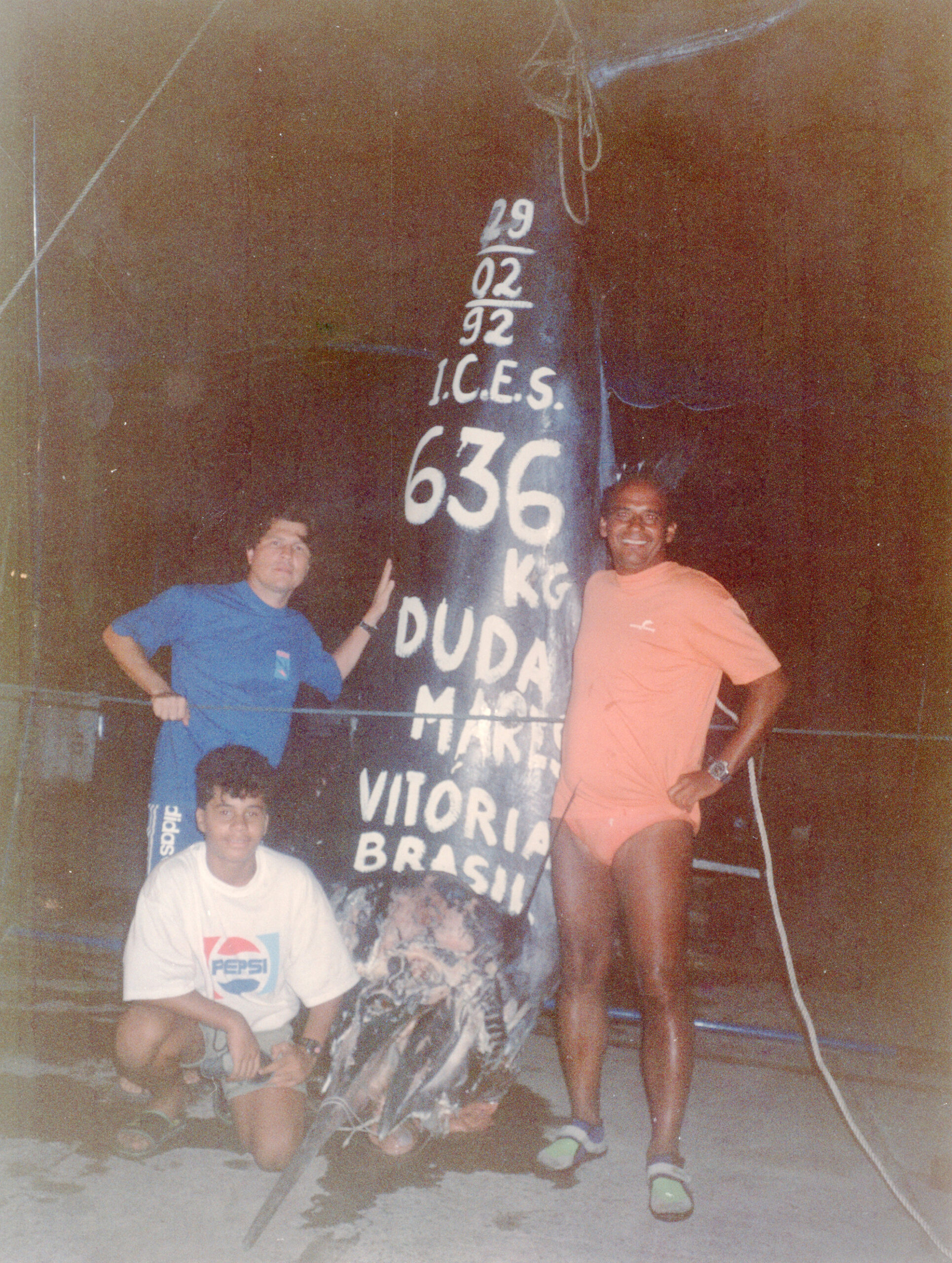
Paulo Amorim holds the all-tackle record with a 1,402-pound, 2-ounce Atlantic blue marlin caught Feb. 29, 1992 off Vitoria, Brazil. The marlin was 161.81 inches long with a 98-inch girth. Amorim was using a Capt. Harry’s rod and Penn International 80 STW reel spooled with 80-pound Ande line. He was trolling a Moldcraft lure.
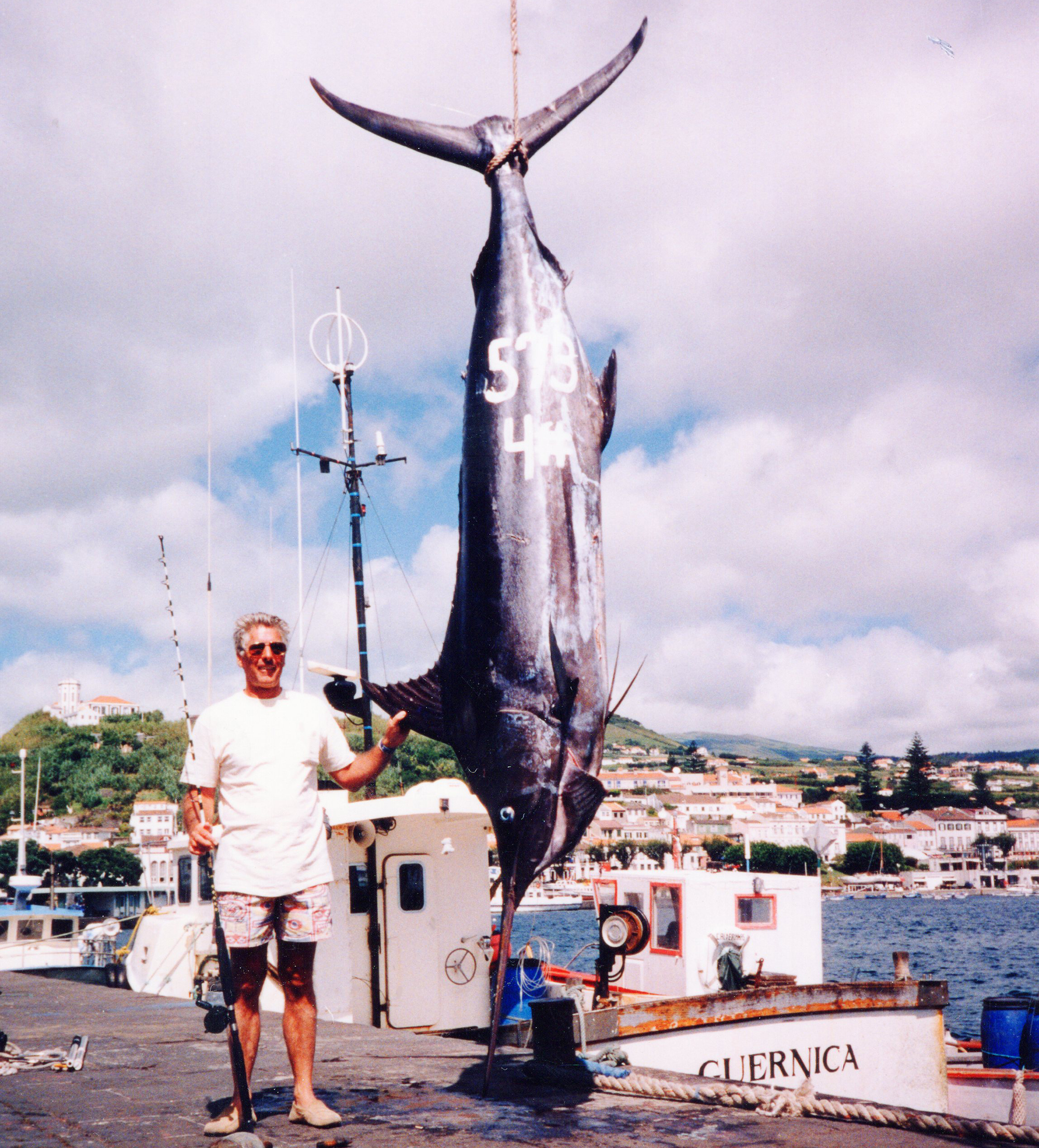
Using just 4-pound line, angler Leo Cloostermans caught a 573-pound Atlantic blue marlin to claim the men’s world record for that line class. Caught Aug. 1, 1995 off Horta, Faial, Azores, Portugal, Cloosterman’s marlin was 116.14 inches long with a 60-inch girth. He was using a Rod by Dru rod with a Shimano reel spooled with Stren line. He was trolling a squid.
Blue marlin are renowned as powerful fighters. They will strip line, burning up a drag before sounding deep and then exploding above the surface with spectacular leaps. Most anglers catch them by trolling large whole baits or a variety of artificial lures and strip baits. But, like many other marlin species, the fish can be induced with teasers to eat pitched baits close to the boat.
Atlantic blue marlin found are found in tropical and warm to temperate ocean waters. Despite their name, they can also be found in the Pacific and Indian Oceans (and the Gulf of Mexico).
The blue marlin’s back is cobalt blue and its flanks and belly are silvery white. Light blue or lavender vertical stripes may be present on the sides when the fish is alive. The fins have no spots.
Unlike black marlin, a blue marlin’s pectoral fins are never completely rigid. Except in the largest fish, the pectoral fins can fold flat against the sides. Blues also have a tall, pointed dorsal fin and large, pointed anal fin.
Pacific Blue Marlin, 1,376 Pounds
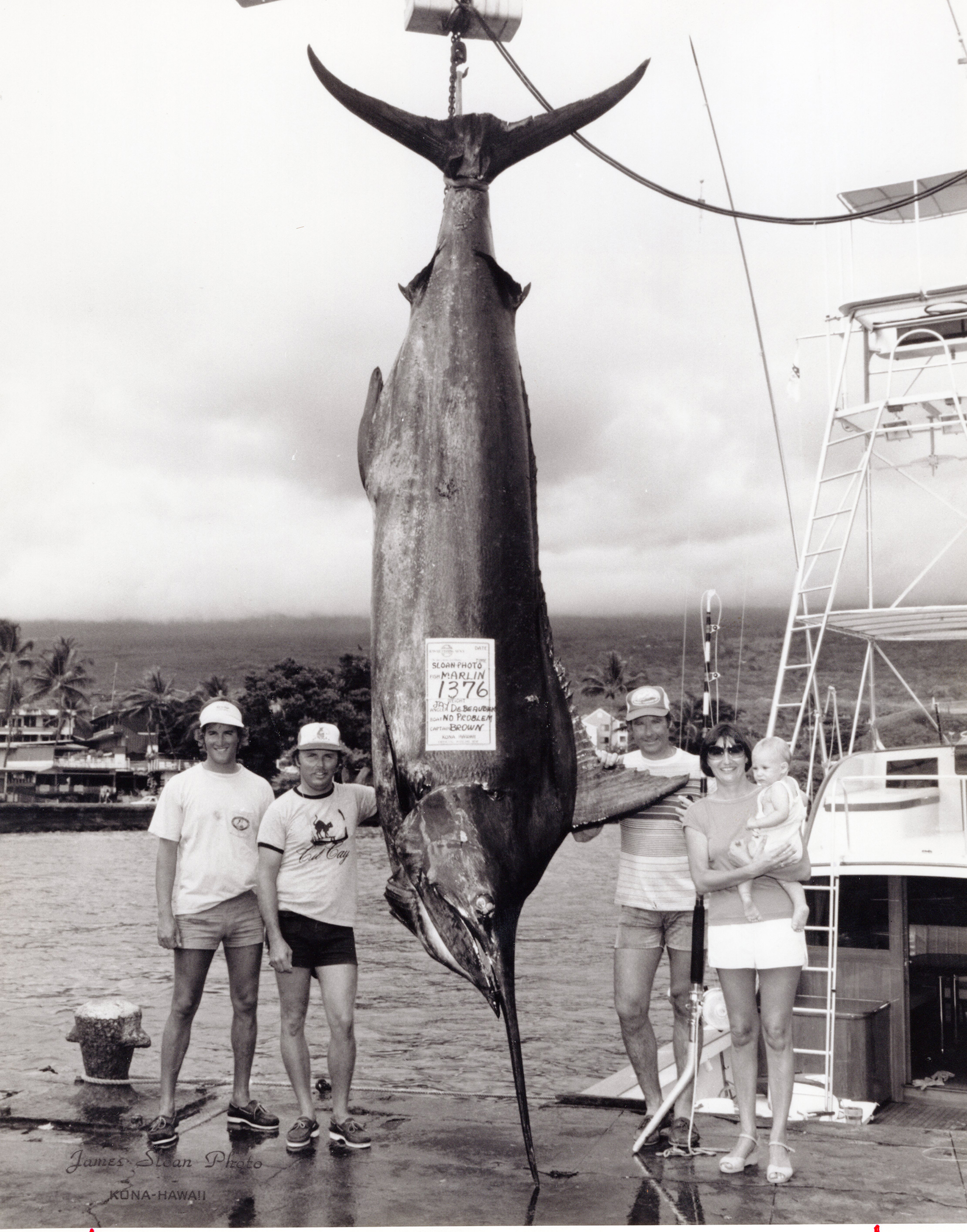
Jay de Beaubien’s 1,376-pound Pacific blue marlin is the all-tackle world record. The marlin, caught May 31, 1982 off Kaaiwi Point, Kona, Hawaii, was 193 inches long with an 82-inch girth. The angler used an Erskine rod and Fin-Nor 12/0 reel. The line was 130-pound Erskine. He was trolling a Kita lure.
The women’s 16-pound line class record is held by Linda Miller, who caught her 632-pound, 12-ounce marlin on May 8, 1984, fishing off Piñas Bay, Panama. Miller was using a Sabre rod and Penn International 20 reel spooled with 16-pound Amalon T line. She was trolling a bonito. The marlin was 120 inches long with a 66-inch girth.
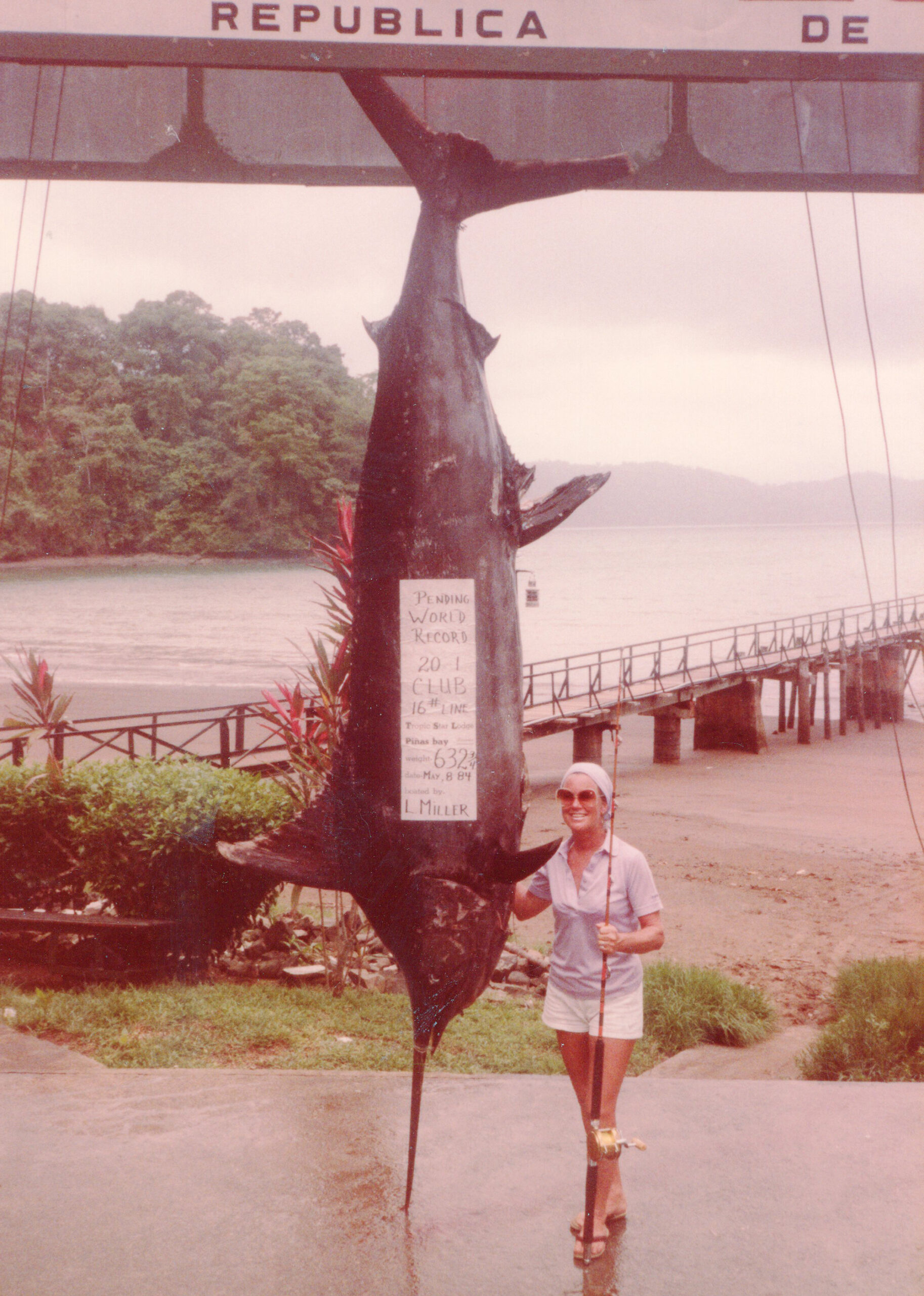
Some professionals who specialize in classifying species believe there isn’t much difference between the Pacific blue marlin and its Atlantic blue relative. According to IGFA, some apply the scientific name Makaira nigricans, Lacepede to the Atlantic species only and the name Makaira mazara to the Pacific and Indian Ocean species. Others treat the two populations as subspecies, Makaira nigricans nigricans and Makaira nigricans Mazara
The coloration, fin characteristics, striping are the same, as are the fishing techniques and fight upon hook up. The Pacific fish are said to grow slightly larger.
Striped Marlin, 494 Pounds
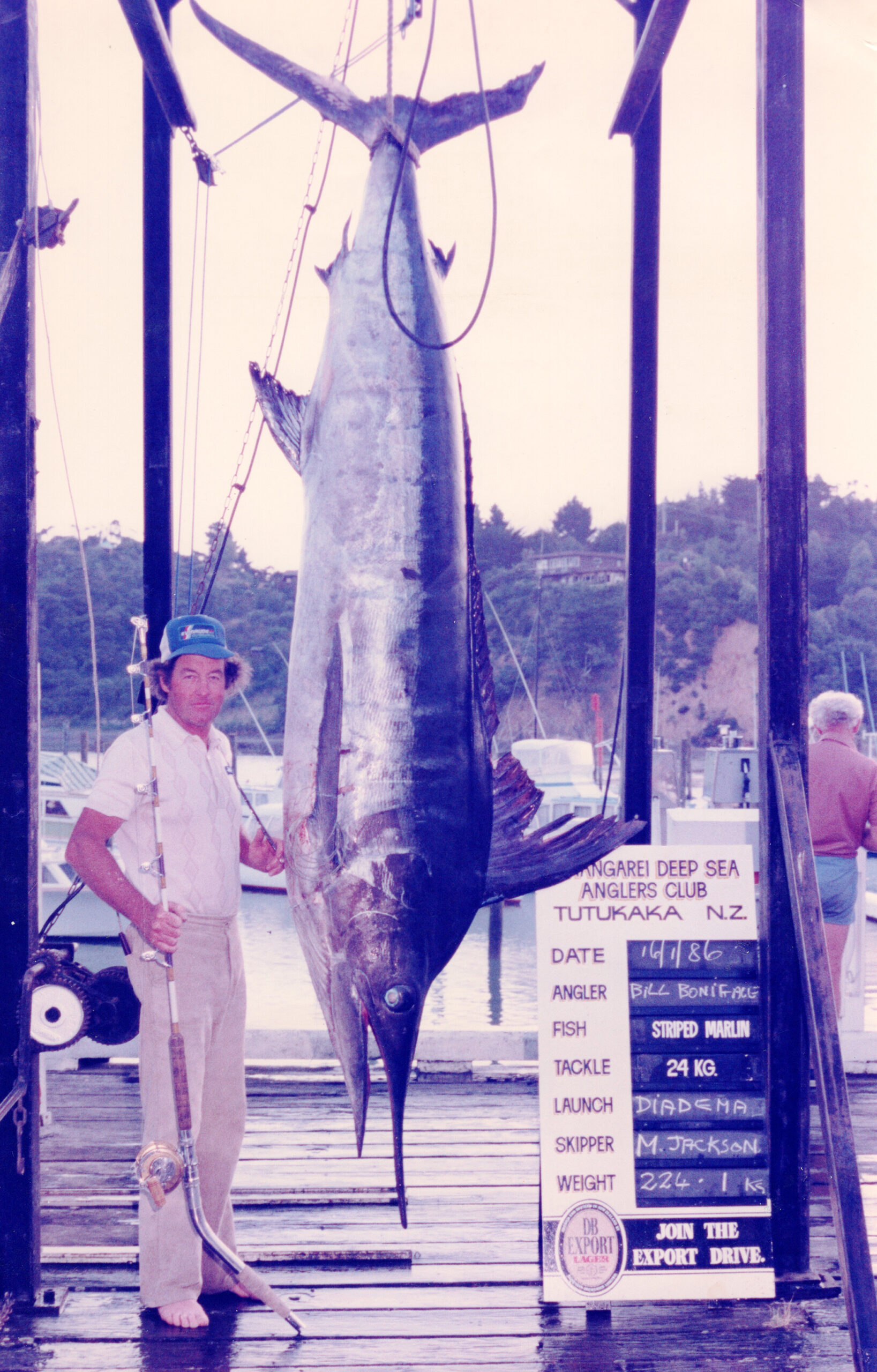
Bill Boniface is the current all-tackle record holder with a 494-pound striped marlin caught Jan. 16, 1986 off Tutukaka, New Zealand. The marlin was 115.67 inches long with a 57-inch girth. Boniface used a Wilkinson Sports rod and Penn International 50 reel spooled with 24-kilogram Ande line. He was trolling a kahawai, also known as Australian salmon.
The men’s 6-pound line class record is held by Guy Jacobsen who caught a 385-pound, 5-ounce striped marlin on April 30, 2010, fishing off Poor Knights Islands, New Zealand. This fish was 118.11 inches long with a 53.54-inch girth. Jacobsen used a Daiwa Saltiga rod with a Shimano Tyrnos 2011 reel spooled with Moimoi line. He was live baiting with a bonito. Clearly a light tackle expert, Jacobsen also holds the 2-, 4-, 8- and 12-pound line class records.
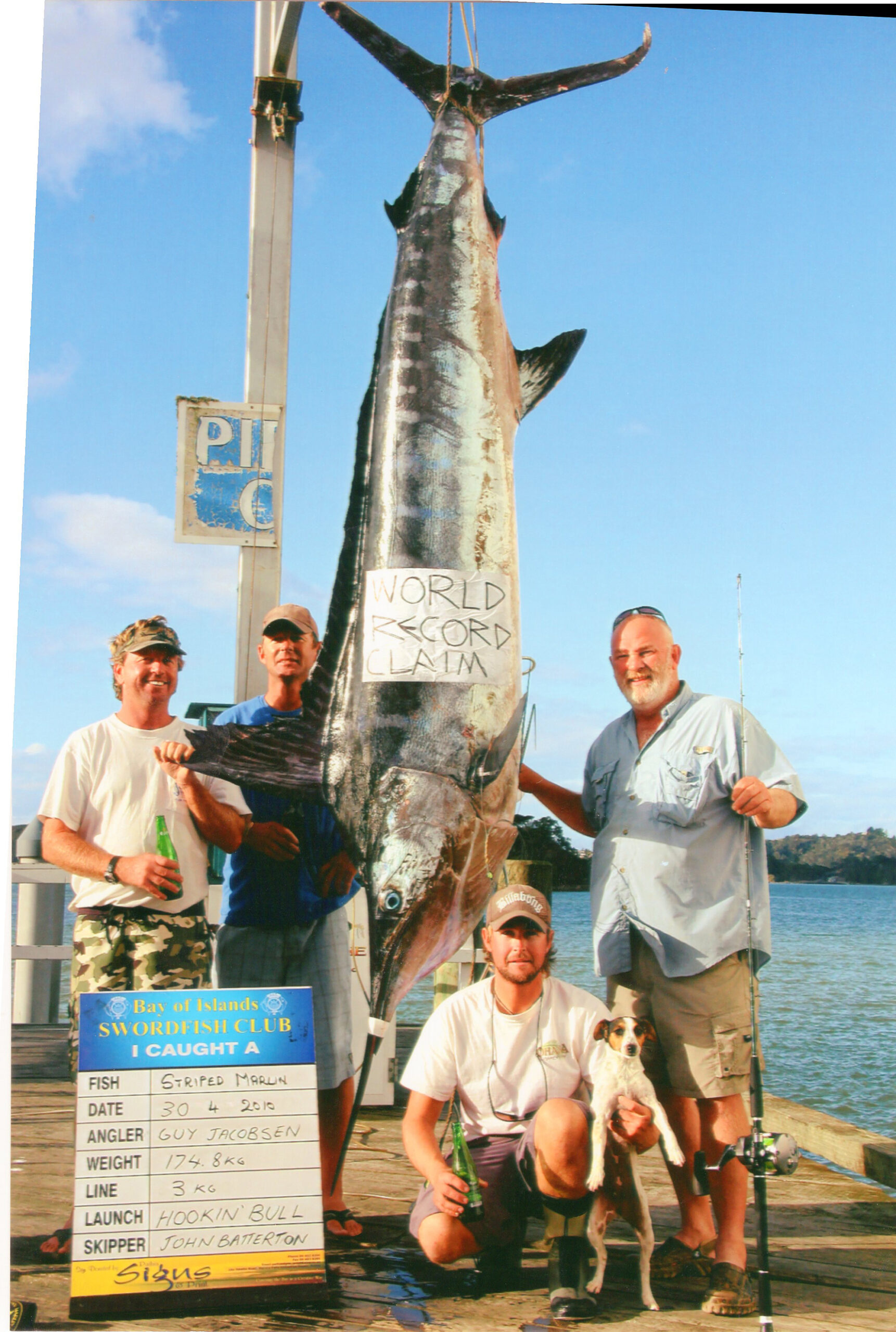
Striped marlin are also sometimes referred to as stripers or, in Japan, as red marlin. These are among the most aggressive and acrobatic of the marlin species, usually making multiple, sensational leaps and tail-walking the water’s surface. Unlike blue marlin, they are often caught fairly close to shore. Anglers troll whole fish, strip baits, or lures. Stripers also readily hammer live bait offerings.
This pelagic, seasonally migratory species inhabits tropical, warm waters of the Indian and Pacific Oceans. Striped marlin don’t like cold water, and they migrate closer to the temperate waters of the equator in cold seasons.
Striped marlin have long, pointed first dorsal fins with the fin usually at least as long or longer than the deepest part of the fish’s body, measured top to bottom. Anal and pectoral fins also are pointed, flat, and easily folded flush against the fish’s side. Their backs are steely blue fading to bluish silver on the upper flanks and white below the lateral line. Iridescent blue spots may appear on the fins. Pale blue or lavender vertical stripes are on the side. The stripes are more vibrant than those seen with other marlins and, unlike other species, this marlin’s stripes remain after the fish dies.
White Marlin, 181 Pounds
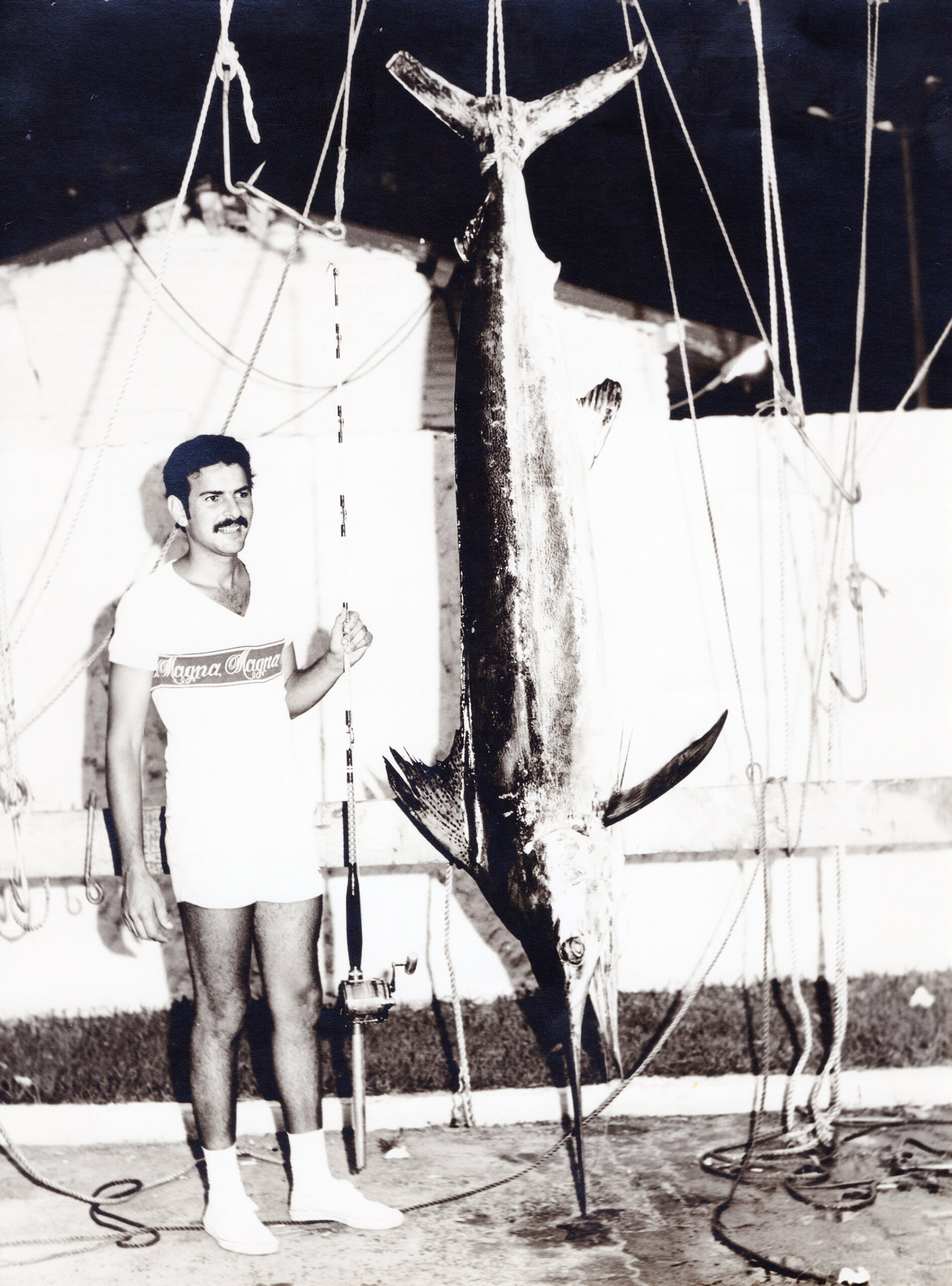
Evandro Coser holds the current all-tackle world record with a 181-pound, 14-ounce white marlin caught Dec. 8, 1979 off Vitoria, Brazil. Coser’s marlin was 107.5 inches long with a 37-inch girth. He used a Magnaflex rod with a Penn International 30 reel spooled with 30-pound Ande line. He was trolling a baitfish.
Anglers fishing out of Mohammedia, Morocco between Aug. 31 and Sept. 4 2018 saw incredible action with big fish on very light tackle. The 2- and 4-pound line class records were set in that short window.
Leo Cloostermans (who also has the 4-pound Atlantic blue marlin record) managed to catch a 93-pound, 12-ounce white marlin, setting the 2-pound line record. His 75-inch-long, 29-inch-girth fish was caught September 4 on a Eustom rod with Shimano reel. Cloostermans was bait fishing.
On August 31, Ibrahim El Ouafi caught a 114-pound, 11-ounce white marlin to set the 4-pound line class record. His fish measured 80.91 inches with a 32-inch girth. He was also bait fishing and used an Alten Kirch rod with Shimano reel.
In September of 2013, Laurent Sahyoun was also fishing out of Mohammedia when he caught a 116-pound, 13-ounce fish to set the 6-pound line class record. He was trolling a mackerel. His marlin was 79.53 inches long with a 32-inch girth. Sahyoun was using a Melton rod and Fin-Nor reel spooled with Ande line.
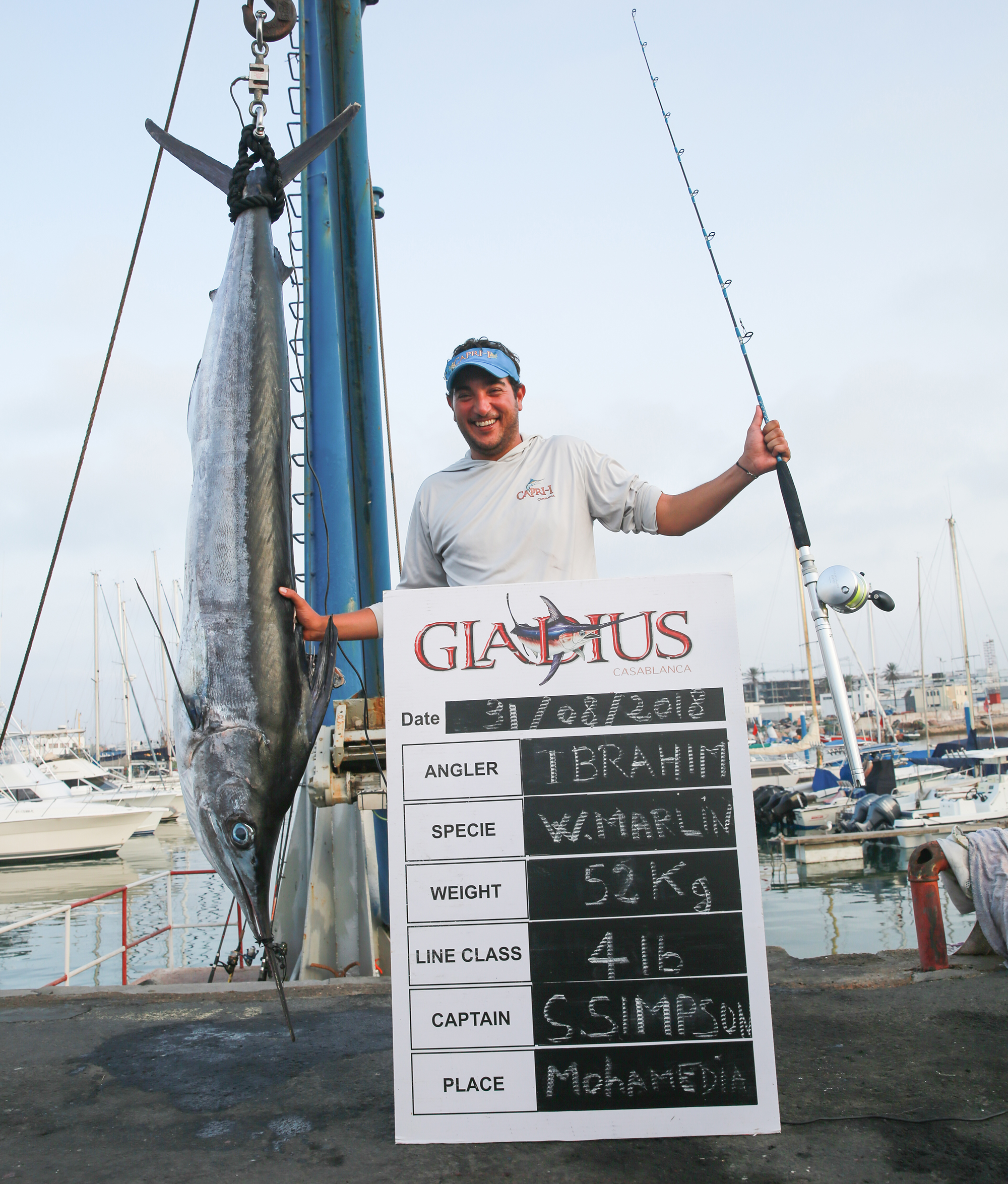
White marlin, a fall favorite in the warm Gulf Stream along the United States Mid-Atlantic coast and Outer Banks, are typically found throughout the Atlantic Ocean, ranging from the Gulf of Mexico and the Caribbean and western Mediterranean Seas. When the fishing is good, you can catch several white marlin in a single day.
White marlin aren’t considered finicky. Anglers troll small, whole or strip baits, spoons, feathers and many other artificial lures. Live bait favorites include squid, ballyhoo, mullet, mackerel, anchovies, herring, and more.
The smallest of the marlin species, its most distinctive feature is the rounded tip on the pectoral fins and the first dorsal and anal fins. They have long first dorsal fins, like striped marlin, as well as flat, foldable pectoral fins. White marlin are usually lighter in color than other marlin species, tending to have more green hues. They, too, are acrobats, fighting hard and leaping high from the water.
